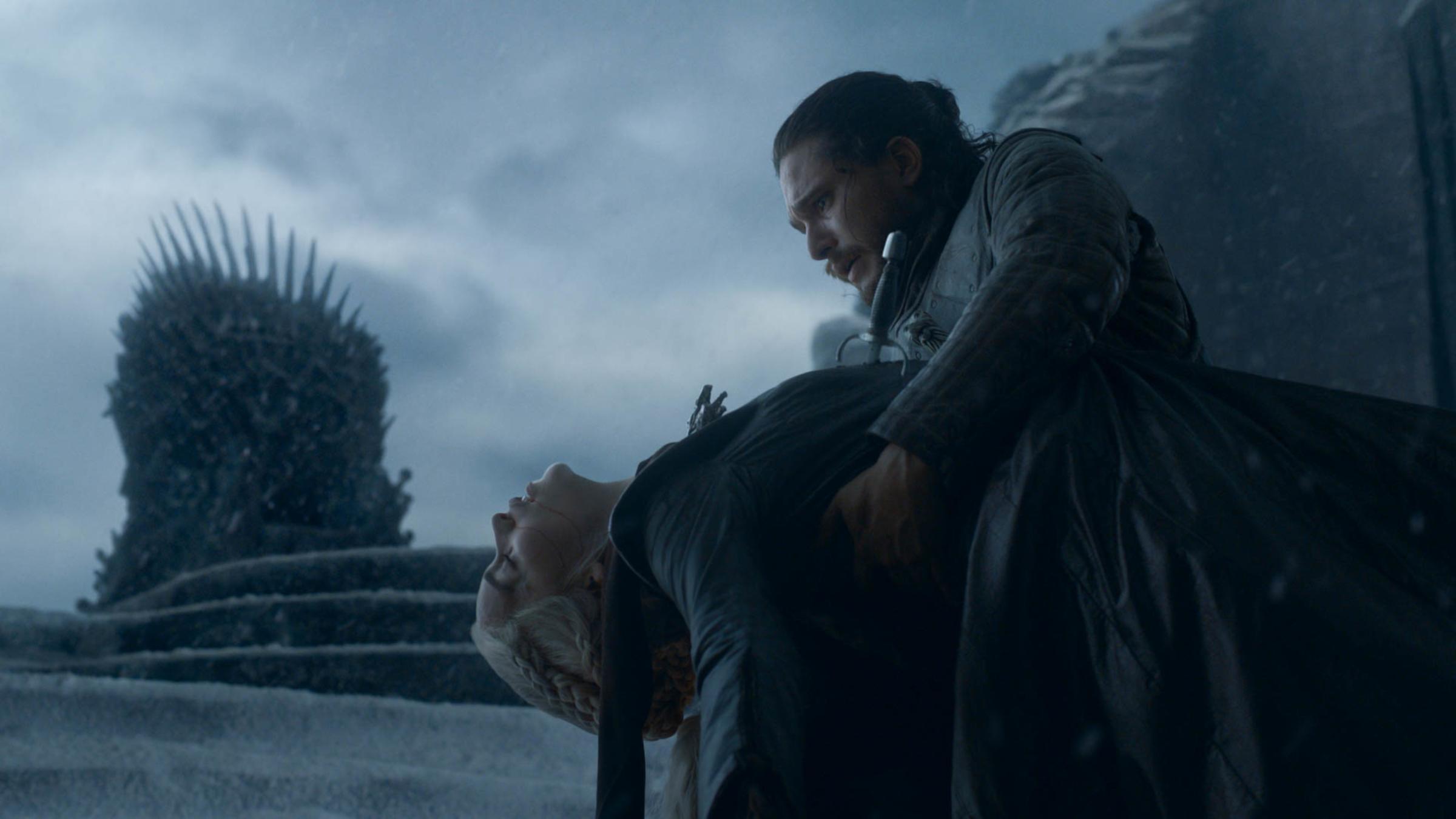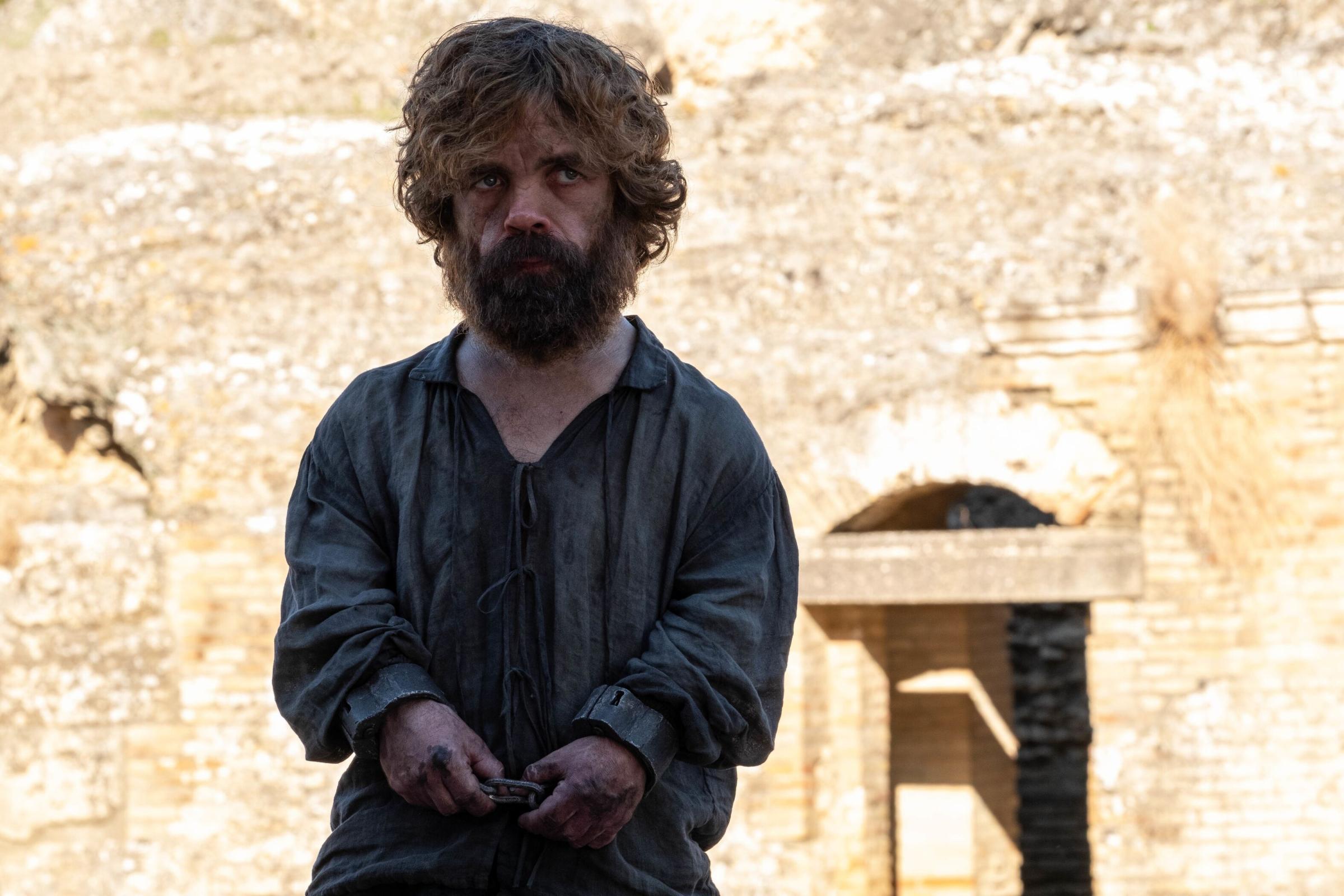The kindest thing I can say about the Games of Thrones series finale is that it might have satisfied Plato. Predictably—in part because it would’ve been so weird to celebrate the victory of one half of an incestuous couple—neither Daenerys’ dangerous zeal nor Jon Snow’s moral purity clinched the Iron Throne; Tyrion had a great mind, but his heart became too much of a liability. And if “Bran the Broken” seemed more likely to stare meaningfully into the middle distance for the rest of his days than play the straight-man boss in a workplace sitcom starring Tyrion and Bronn, well, at least he came closest to embodying a great leader as conceived by a titan of Western thought who isn’t George R.R. Martin. As you might remember from Philosophy 101, Plato’s utopia was presided over by philosopher kings—rulers who loved knowledge more than power.
Bran is a strange twist on that archetype; his omniscient view of the past and the present makes him a sort of flesh-and-blood A.I., blessed with better decision-making tools than anyone this side of IBM’s Watson. A dispassionate tautology of a person, he has all the answers because he knows everything. Does he have a core set of beliefs, in the same sense that Dany or Arya did? I’m not sure his Three-Eyed Raven body-share arrangement allows for the formation of subjective values.
There’s no question that Bran and his sassy council are better news for the people of Westeros than Cersei, Joffrey, the Mad King, Robert Baratheon—or, in all likelihood, Daenerys. But as a viewer, I shrugged. A happy ending isn’t the same thing as an ending satisfying enough to keep you up at night, thinking about how the show’s elemental questions were resolved (see: Six Feet Under, Mad Men and, just this week, Fleabag). In this case, it was all I could do to stay awake through the end credits.
It didn’t have to be this way. In its heyday, Game of Thrones was a political thriller more than a fantasy epic. Its struggle between would-be monarchs had depth because it was also a struggle between conflicting ideas about freedom, justice and leadership. Do good ends justify cruel means? Or should we, like Ned Stark, feel obligated to do the right thing even when it’s suicidal? When someone wrongs you, do you turn the other cheek or do you add their name to the kill list? Can any person be trusted with absolute power? It would’ve been nice if the show had followed these quandaries through to the end.

To its credit, the finale devoted more time to political debates than most episodes in the past three seasons. Mad Dany was struck down because she believed so deeply in the righteousness of her crusade against tyrants and masters that she no longer valued human life. (But wasn’t it kind of unsettling to watch Jon and Tyrion lament her fixation on freeing slaves to an extent that implied any sane monarchs could countenance some amount of slavery?) Drogon took up the anti-fascist position, directing his fire at the seat of power. Toward the end, when the Houses gathered to name a new leader, Samwell Tarly got big laughs with his wild plan for universal suffrage—a reminder, perhaps, of how backward Westeros remains. And aside from being a nice gesture for fans disappointed by the derailing of Dany’s girl-power train, Sansa’s queendom in the North resonates as a vindication of a self-sacrificing worldview we might call Starkism; putting your own life on the line for the good of others should at least buy you liberty. (Sansa also got the best line of the episode: “Uncle, please sit.”)
It all felt a little empty, though. By the finale, thorny ideological conflicts had been either dropped or reduced to morally straightforward questions like who’s brave and who’s a coward, who kills indiscriminately and who respect human life. I was stunned by the hollowness of Tyrion’s big speech to the other Westerosi aristocrats. “What unites people?” he asks, rhetorically. “Armies? Gold? Flags?” Of course not. “Stories,” he insists. “There’s nothing in the world more powerful than a good story. Nothing can stop it. No enemy can defeat it.” Bran’s backstory, apparently, made him the best choice to be king.

I assume that the monologue—like Sam presenting the manuscript of A Song of Ice and Fire—was meant to be meta, a shout-out to the massive community the show has galvanized over the past eight years. (Harsher critics might also call it self-aggrandizing on the part of creators David Benioff and D.B. Weiss.) Yet what Tyrion neglects to mention is even more telling. A great story does more than just occupy its audience’s attention; it suggests something about the real world and how we might live in it. No one can deny that the physical embodiment of knowledge would make a pretty perfect leader. But until we have the option of being ruled by such a being, I’m not sure the end of Game of Thrones will have much to teach us.
More Must-Reads from TIME
- Why Trump’s Message Worked on Latino Men
- What Trump’s Win Could Mean for Housing
- The 100 Must-Read Books of 2024
- Sleep Doctors Share the 1 Tip That’s Changed Their Lives
- Column: Let’s Bring Back Romance
- What It’s Like to Have Long COVID As a Kid
- FX’s Say Nothing Is the Must-Watch Political Thriller of 2024
- Merle Bombardieri Is Helping People Make the Baby Decision
Contact us at letters@time.com